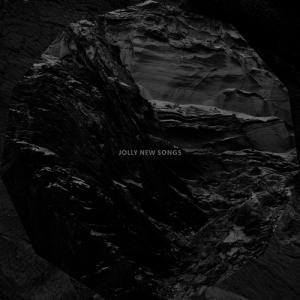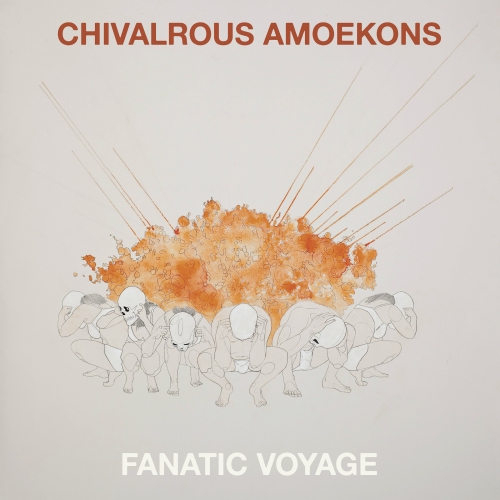Blue Tapes and X-Ray / Ici d’ailleurs
 For most people of certain age, the name of Gdańsk, Poland’s principle seaport on the Baltic, will forever bring to mind scratchy newsreel footage of world-historical importance: vast grey shipyards, cold hairy-looking men smoking furiously and wearing donkey jackets and, perhaps most vividly of all, legendary moustache-wearer Lech Wałęsa signing the Gdańsk Agreement of 1980 – which lead to the creation of the Solidarity trade union and to huge subsequent political changes both in Poland and more widely behind the Iron Curtain as a whole – with a giant comedy ballpoint pen.
For most people of certain age, the name of Gdańsk, Poland’s principle seaport on the Baltic, will forever bring to mind scratchy newsreel footage of world-historical importance: vast grey shipyards, cold hairy-looking men smoking furiously and wearing donkey jackets and, perhaps most vividly of all, legendary moustache-wearer Lech Wałęsa signing the Gdańsk Agreement of 1980 – which lead to the creation of the Solidarity trade union and to huge subsequent political changes both in Poland and more widely behind the Iron Curtain as a whole – with a giant comedy ballpoint pen.
Like many port cities, Gdańsk, previously sometimes also referred to by its German designation Danzig during the politically knife-edge period between the wars, has never been any stranger to cultural traffic, having hosted St Dominic’s Fair, dating back to 1260 and one of the biggest trade and cultural events in Europe. It is perhaps no surprise, then, that Gdańsk’s greatest current musical export represent the kind of fusion of influences and cultures so typical of an entrepôt city.
Starting life at the tail-end of the last decade, quartet Trupa Trupa comprise a guitar-bass-drums-keyboard line-up operated by Tomek Pawluczuk, Rafał Wojczal and dual vocalists Grzegorz Kwiatkowski and Wojciech Juchniewicz. The lyrical complexity of Kwiatkowski, author of four volumes of short, genre-busting poetry, is reflected in the band’s name, an ambiguous interplay between the word’s two Polish meanings: “troupe” and “corpse”.Around the time of the band’s third album, Headache, their international profile was given an enormous fillip when Sasha Frere-Jones wrote in the Los Angeles Times that “one of the best rock bands doing business now is from Gdansk, Poland”. Since then, their reputation has continued to grow, fuelled by the currency of their much-rated live shows whose power has been relayed across the international grapevine by the cognoscenti lucky enough to have seen them. More than once they have drawn comparisons to Faust for their solve et coagula ability to hop deftly out of preconceived genre limitations, effortlessly fusing styles and influences in their singular alembic and emerging with a sound that is completely their own.
And on that count, frankly, Jolly New Songs is no disappointment. Indeed, for those thirsting with musical curiosity, it is like stumbling upon a gurgling freshwater spring. With preternatural acuity, Trupa Trupa conjure some truly remarkable soundscapes from a standard (and thus in reality quite limited) palette of instrumentation: from the kind of vast glacial vistas that are Godspeed You! Black Emperor’s stock in trade to funky, clockwork miniatures reminiscent of Can and even, at times, Jeff Buckley-esque moments of gossamer intimacy.
And you’ve got to be really good to call a track “Love Supreme” with scarcely an eyebrow raised. But, hey, I’m just a sucker for a scratchy tape choir. Closer “To Me” tows the good ship Galaxie 500 out into deep waters and subjects it to a pummelling of 30m waves. It’s a magnificent statement of intent and an appropriate way to close this enchanting album.
Criticisms? Well, none really. None that are significant anyway. To give the album a geographical locus it would be nice to hear some songs sung in Polish (you would never know the band weren’t from, say, Portland, Oregon if you were stumbling into them unprepared), but in the quest not to limit their overseas appeal unnecessarily such quibbles are perhaps small beans.
Well over half a century after Dick Rowe told Brian Epstein that he wouldn’t be signing The Beatles as “[g]roups of guitars are on the way out”, bands like Trupa Trupa and Avec Le Soleil Sortant De Sa Bouche are proving that, though the mineshaft might have to sunk a little deeper, there are still rich and bountiful seams to be mined.Supa Trupa.
-David Solomons-



